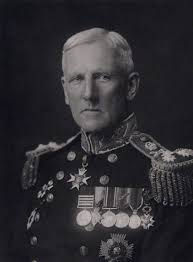Jellicoe - The only man capable of losing WW1 in a single afternoon
- Shaun Lewis
- Dec 4, 2017
- 2 min read
Today, in 1916, Admiral Jellicoe was appointed First Sea Lord. It was not to be a successful office for him.
Jellicoe is best known for his appointment as Commander-in-Chief of the Grand Fleet during the Battle of Jutland. He was a cautious man and has been criticised for failing to achieve a decisive victory at Jutland. However, with limited intelligence of the German Fleet’s movements, he probably handled the Grand Fleet as well as anybody could have expected. As Churchill said, he was “the only man on either side who could lose the war in an afternoon”.
Unfortunately, Jellicoe was a pessimist and some would say a defeatist. As the First Sea Lord he briefed the new Prime Minister, Lloyd George, nothing could be done to counter the U-boat threat and initially imposed the introduction of the convoy system. Lloyd George soon reached the conclusion that Jellicoe would have to go, but it took several more months before Jellicoe was sacked at the end of 1916. Nonetheless, he was promoted to Admiral of the Fleet in 1919 and appointed as Governor General of New Zealand in 1920. He was elevated to the peerage on his return to Britain in 1925 and died ten years later.
Despite Jellicoe’s reputation for caution in high command, few people today recognise his heroism in the late 1800s. He commanded a rifle company of the Naval Brigade during the Egyptian War of 1892 and served with distinction in China during the Boxer Rebellion. At the Battle of Beicang, in 1900, he personally led the Naval Brigade in an assault on the Boxers’ heavily defended position and was shot in the chest, his wounds so bad that he was not expected to live. His actions were later rewarded with the CB and a German decoration for gallantry. Despite his failure as First Sea Lord, he was highly regarded by his fellow admirals for his sense of duty, courage and dignity.







Comments